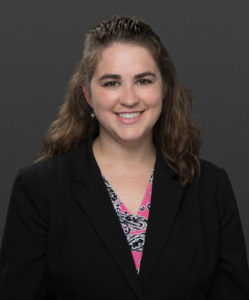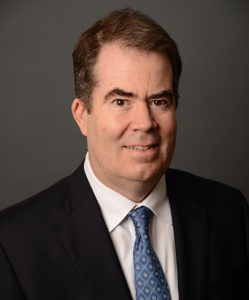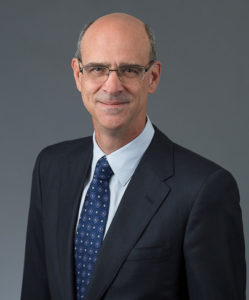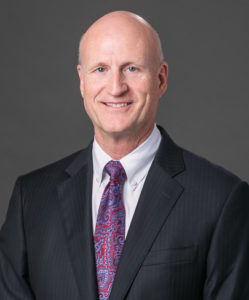On January 13, 2022, the United States Supreme Court (“Court”) issued two critical decisions: one staying the OSHA ETS vaccine or test mandate, the second allowing the OSHA CMS vaccine mandate for healthcare facilities to move forward.
THE OSHA ETS IS STAYED
By way of background, the OSHA ETS requires all employers with more than 100 employees to be vaccinated or submit to weekly testing and comply with face-covering requirements effective February 9, 2022. The notice and documentation requirements of the ETS went into effect January 10, 2022, meaning many employers likely rolled out policies that they may choose to roll back or otherwise rescind. The Firth Circuit had stayed the requirement, but the Sixth Circuit reversed the Fifth Circuit, lifted the stay, and allowed the vaccine or test mandate to charge ahead. The Supreme Court heard the issue on briefs and via oral argument on January 7, 2022, in the matter of National Federal of Independent Business, et al., v. Department of labor, occupational Safety and Health Administration, Nos. 21A244 and 21A247 (January 13, 2022), and issued its decision to stay the mandate from going into effect.
As the high Court noted, the mandate requires that covered workers (i.e., those who worked for employers with 100 or more employees) receive the COVID–19 vaccine or submit to weekly COVID-19 tests at their own expense and on their own time and wear a mask in the workplace. The ETS also pre-empted contrary state laws. As the Court pointed out, and as we noted in our blog, “Why President Biden’s Plan to Vaccinate the Unvaccinated in Private Employment Is a Lot of Buzz, but Likely Little Sting,” such a mandate “has never been before imposed,” nor has Congress enacted significant legislation addressing the COVID-19 pandemic. The Court’s review extended to the issue of emergency relief from the rule going into effect, and the Court granted the petitioners’ applications and stayed the rule.
The Court found that the applicants are likely to succeed on the merits of their claim that the Secretary lacked authority to impose the mandate as administrative agencies are creatures of statute and only possess those powers that Congress has conferred upon them. The Court found that OSHA did not have the power to enact the mandate.
The Court also noted that OSHA’s power extends to protecting against risk in the “occupational” context, but COVID-19 “can and does spread at home, in schools, during sporting events, and everywhere else that people gather.” As such, “[t]hat kind of universal risk is no different from the day-to-day dangers that all face from crime, air pollution, or any number of communicable diseases.” Allowing OSHA to regulate the hazards of daily life is far too expansive given the more limited scope of OSHA’s powers, and that is what the Court found the mandate attempted to do.
The Court found that the equities did not justify the mandate because it would force employers to incur billions of dollars in unrecoverable compliance costs and cost hundreds of thousands of employees their jobs. The Court criticized the mandate and called it a “blunt instruction” that “draws no distinctions based on industry or risk of exposure to COVID-19.” The Court also called the rule a “[s]ignificant encroachment into the lives—and health—of a vast number of employees,” 84 million to be somewhat exact.
What does this mean for private employers with more than 100 employees? The OSHA ETS mandate is now stayed, pending disposition of the applications’ petition for review in the Sixth Circuit and writs of certiorari. In other words, while the case now goes back to the Sixth Circuit, it will eventually find its way back to the Court, and this decision is an excellent indicator of how the Court will address the ultimate issue and put the OSHA ETS to its final end.
Employers are free to issue their own mandates, except in those state and local jurisdictions that have prohibited laws, such as Montana.
THE CMS MANDATE MOVES FORWARD
In contrast to its decision on the OSHA vaccine-or-test mandate, in Joseph R. Biden, President of the United States et al., v. Missouri, et al., Case No. 21C241 (January 13, 2022), the Court upheld the rule promulgated by the Secretary of Health and Human Services (and its Centers for Medicare & Medicaid Services (CMS)) requiring that, in order to receive Medicare and Medicaid funding, participating facilities must ensure that their covered employees are fully vaccinated against COVID-19 (unless exempt for medical or religious reasons).
By way of background, on November 5, 2021, the Secretary issued an interim final rule requiring that facilities participating in Medicare and Medicaid ensure that their covered staff are vaccinated against COVID-19. The rule does not cover staff who exclusively telework, and it allows for appropriate medical and religious exemptions. A facility’s failure or refusal to comply could lead to a host of penalties, including denial of payments for new admissions and termination from Medicare and Medicaid programs. The Secretary issued the rule after concluding that vaccination was “necessary for the health and safety of individuals to whom care and services are furnished.” According to the Court, that determination was “based on data showing that the COVID-19 virus can spread rapidly among healthcare workers and from them to patients and that such spread is more likely when healthcare workers are unvaccinated.”
Following promulgation of the rule, the District Court for the Eastern District of Missouri and the District Court for the Western District of Louisiana granted preliminary injunctions that prevented enforcement of the Secretary’s rule.
In reversing the district courts and upholding the rule, the Court found that the “Secretary’s rule falls within the authorities that Congress has conferred upon him.” Specifically, the Court held that Congress has authorized the Secretary to impose conditions on participation in the Medicare and Medicaid programs that he or she found “necessary in the interest of the health and safety of individuals who are furnished services.” 42 U.S.C. § 1395x(e)(9). The Court found that the mandate fell “neatly within the language of the statute,” where, “[a]fter all, ensuring that providers take steps to avoid transmitting a dangerous virus to their patients is consistent with the fundamental principle of the medical profession: ‘first, do no harm.’” The Court also held that “healthcare facilities that wish to participate in Medicare and Medicaid have always been obligated to satisfy a host of conditions that address the safe and effective provision of healthcare.” Thus, the Court held that the Secretary was well within his authority to require that facilities participating in Medicare and Medicaid require their staff to be vaccinated.
What does this mean for healthcare providers? Those providers who participate in the Medicare and Medicaid programs are required to ensure that all of their workers are vaccinated against COVID-19, with the exception of those who telework exclusively. Participating facilities must also consider any requests for accommodation for religious or medical reasons. This case now goes back to the Eighth Circuit (where the Eastern District of Missouri is located) and the Fifth Circuit (where the Western District of Louisiana is located) for consideration. However, the Secretary’s rule will remain in force unless the Court grants certiorari on a subsequent appeal and issues a contrary ruling.
Related Services
For More Information
 Sara H. Jodka (Member, Columbus) is a member of the firm’s labor and employment department and regularly counsels employers and litigates all types of employment-related cases. She has worked closely with business clients regards to COVID-19 employment-related matters since the beginning of the pandemic. Sara is the editor of the firm’s All Things HR Blog and the Chair of the Ohio State Bar Association’s Labor and Employment Section Council. She can be reached at 614-744-2943 or SJodka@dickinsonwright.com. Her biography can be viewed here.
Sara H. Jodka (Member, Columbus) is a member of the firm’s labor and employment department and regularly counsels employers and litigates all types of employment-related cases. She has worked closely with business clients regards to COVID-19 employment-related matters since the beginning of the pandemic. Sara is the editor of the firm’s All Things HR Blog and the Chair of the Ohio State Bar Association’s Labor and Employment Section Council. She can be reached at 614-744-2943 or SJodka@dickinsonwright.com. Her biography can be viewed here.
 Aaron Burrell (Member, Detroit & Troy) focuses his practice in the areas of complex commercial litigation, labor and employment law, appellate law, and minority business enterprises. As a member of the firm’s labor and employment practice, he has successfully defended clients in a wide range of discrimination and unfair-labor-practice claims in state and federal court, as well as before the Equal Employment Opportunity Commission, the Michigan Department of Civil Rights, and the National Labor Relations Board. Mr. Burrell has also counseled clients on all aspects of the employment relationship including hiring, discipline, and the creation and enforcement of employment agreements. Mr. Burrell may be reached at 313-223-3118 or at aburrell@dickinsonwright.com.
Aaron Burrell (Member, Detroit & Troy) focuses his practice in the areas of complex commercial litigation, labor and employment law, appellate law, and minority business enterprises. As a member of the firm’s labor and employment practice, he has successfully defended clients in a wide range of discrimination and unfair-labor-practice claims in state and federal court, as well as before the Equal Employment Opportunity Commission, the Michigan Department of Civil Rights, and the National Labor Relations Board. Mr. Burrell has also counseled clients on all aspects of the employment relationship including hiring, discipline, and the creation and enforcement of employment agreements. Mr. Burrell may be reached at 313-223-3118 or at aburrell@dickinsonwright.com.
 Christy K. McDonald (Member, Grand Rapids) is a labor and employment attorney. Christy McDonald is an employment lawyer and litigator. She is passionate about working with employers on their legal challenges and opportunities. She provides daily counseling for employers on all aspects of employment law and provides proactive advice on litigation avoidance and risk management. She can be reached at 616.336.1039 or cmcdonald@dickinsonwright.com, and her biography is available here.
Christy K. McDonald (Member, Grand Rapids) is a labor and employment attorney. Christy McDonald is an employment lawyer and litigator. She is passionate about working with employers on their legal challenges and opportunities. She provides daily counseling for employers on all aspects of employment law and provides proactive advice on litigation avoidance and risk management. She can be reached at 616.336.1039 or cmcdonald@dickinsonwright.com, and her biography is available here.
 Jeffrey M. Beemer (Member, Nashville) focuses his practice on commercial business litigation, labor and employment, civil rights and governmental liability, product liability and personal injury, and transportation. Jeff can be reached at 615-620-1719 and you can learn more about Jeff’s practice here.
Jeffrey M. Beemer (Member, Nashville) focuses his practice on commercial business litigation, labor and employment, civil rights and governmental liability, product liability and personal injury, and transportation. Jeff can be reached at 615-620-1719 and you can learn more about Jeff’s practice here.
 David R. Deromedi (Member, Detroit) is a member of the firm’s labor and employment department and regularly advises clients on employer/contractor issues. For more information, you can review his bio here, or you may contact David directly at 313-223-3048 or email him at DDeromedi@dickinsonwright.com.
David R. Deromedi (Member, Detroit) is a member of the firm’s labor and employment department and regularly advises clients on employer/contractor issues. For more information, you can review his bio here, or you may contact David directly at 313-223-3048 or email him at DDeromedi@dickinsonwright.com.
 Kathryn S. Wood is (Member, Detroit) Co-Chair of Dickinson Wright’s Michigan Litigation Practice Group. She focuses her practice in the areas of employment litigation, commercial litigation, and appellate practice. She has experience with discrimination, harassment, retaliation, whistleblower, complex commercial litigation, class and collective actions and defamation claims in Michigan, Indiana and Ohio. She can be reached at 313-223-3115 or kwood@dickinsonwright.com.
Kathryn S. Wood is (Member, Detroit) Co-Chair of Dickinson Wright’s Michigan Litigation Practice Group. She focuses her practice in the areas of employment litigation, commercial litigation, and appellate practice. She has experience with discrimination, harassment, retaliation, whistleblower, complex commercial litigation, class and collective actions and defamation claims in Michigan, Indiana and Ohio. She can be reached at 313-223-3115 or kwood@dickinsonwright.com.
 Sam D. Coffman (Member, Phoenix) is the leader of the Labor and Employment Practice Group in Dickinson Wright’s Phoenix office. He has over 30 years of experience counseling employers in all areas of employment law, including management and labor practices, hiring, discipline, terminations, terms of employment, and the review and drafting of employment policies, manuals and employee contracts. He can be reached at (602)285-5029 or scoffman@dickinsonwright.com.
Sam D. Coffman (Member, Phoenix) is the leader of the Labor and Employment Practice Group in Dickinson Wright’s Phoenix office. He has over 30 years of experience counseling employers in all areas of employment law, including management and labor practices, hiring, discipline, terminations, terms of employment, and the review and drafting of employment policies, manuals and employee contracts. He can be reached at (602)285-5029 or scoffman@dickinsonwright.com.
 Angelina Delmastro (Associate, Detroit) focuses her practice on labor and employment litigation, including discrimination, retaliation, wage and hour, disability, unemployment insurance benefits, and FMLA matters. She also advises entities and individuals regarding employment matters and regulatory compliance, and has experience in negotiating complex severance and settlement agreements on terms advantageous to our clients. Lina may be contacted at adelmastro@dickinsonwright.com, and you may visit her bio here.
Angelina Delmastro (Associate, Detroit) focuses her practice on labor and employment litigation, including discrimination, retaliation, wage and hour, disability, unemployment insurance benefits, and FMLA matters. She also advises entities and individuals regarding employment matters and regulatory compliance, and has experience in negotiating complex severance and settlement agreements on terms advantageous to our clients. Lina may be contacted at adelmastro@dickinsonwright.com, and you may visit her bio here.
